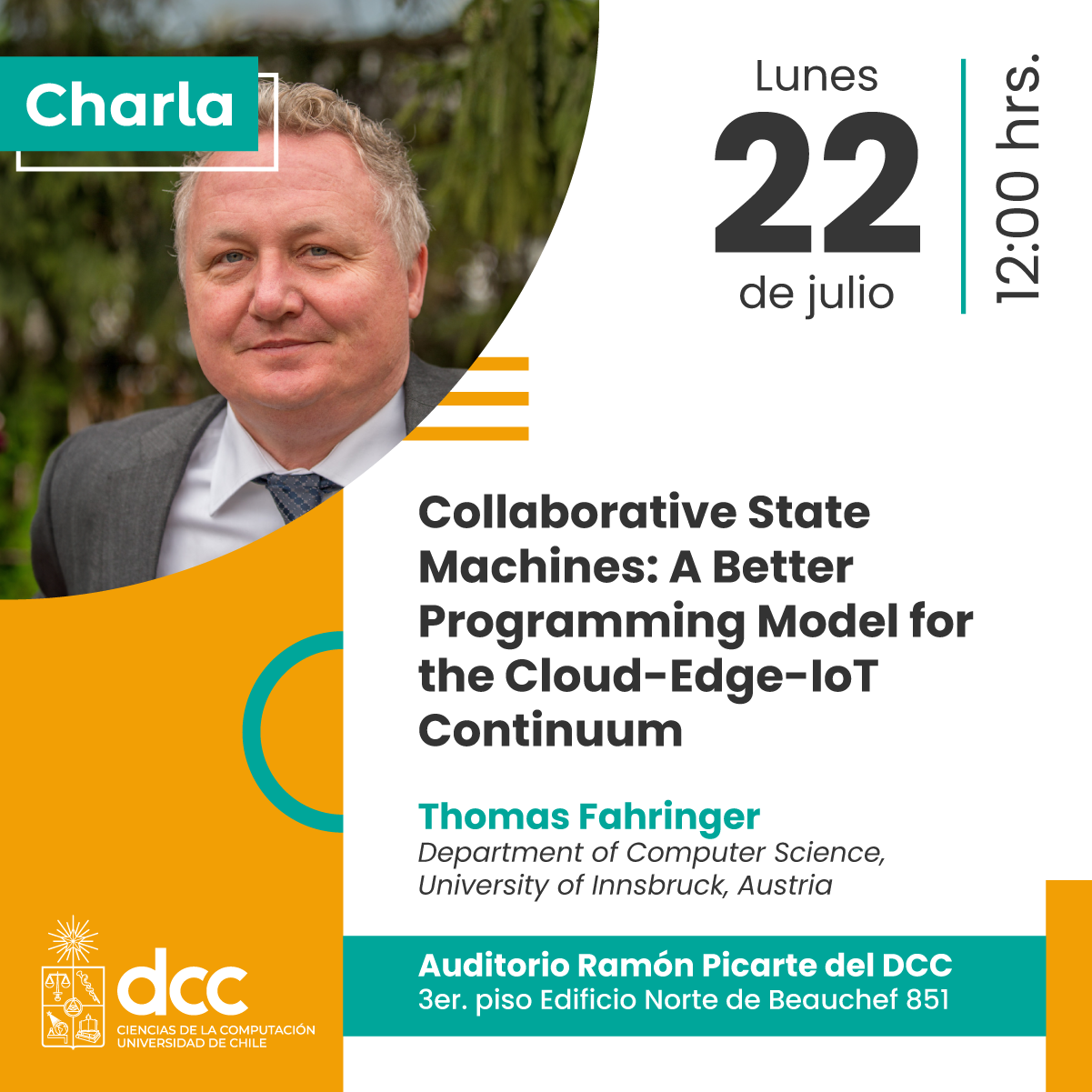Abstract
Existing programming models face challenges in addressing dynamic and stateful aspects of modern Cloud-Edge applications. To overcome this weakness, this paper introduces Collaborative State Machines (CSM), a novel approach to facilitate the development of reactive, event-driven, and stateful applications for the Cloud-Edge-IoT continuum. CSM enables the development of applications as a collection of state machines that collaborate autonomously and can be distributed across the layers of the continuum. Key features of CSM include (i) a collaboration mechanism among state machines using events and persistent data; (ii) encapsulation of state by encompassing the inherent state of state machines and persistent data; (iii) actions and service invocations as an integral part of states and state transitions decoupling complex application logic from compute and data processing services; and (iv) an advanced data model supporting the processing of local, static and persistent data with scope and lifetime. We evaluate CSM through two realistic use cases. Our evaluation with a light control use case demonstrates that CSM provides a significant improvement in productivity and costs over a state-of-the-art application development platform (AWS Step Functions). Experiments with a video surveillance use case show that CSM also effectively accommodates the Edge layer, resulting in a lower reaction time (10%) and cost reduction (64x) over a comparable use case implementation using Cloud-IoT versus Cloud-Edge-IoT.
Biography
Thomas Fahringer is a Professor in the Institute of Computer Science at the University of Innsbruck in Austria where he leads a research group in the area of distributed and parallel processing. His research interests are in programming languages, application development environments, runtime systems, compilers and optimization of applications for high performance computing, cloud, edge and fog infrastructures. He directs the development of the Apollo programming and runtime environment to support researchers in various fields of science and engineering to create, analyse, optimize and run distributed applications for Cloud, Edge and Fog systems. He leads a research team that develops the Insieme parallelizing and optimizing compiler for heterogeneous multicore parallel computers, which range from mobile systems to high-end supercomputers. Additionally, his team is developing the CELERITY runtime system for GPU clusters. Fahringer has extensive experience in programming languages, compiler technology, runtime systems and performance/energy tools of high performance computing and distributed systems.
Fahringer was involved in numerous national and international research projects including 17 EU funded projects. Fahringer has published 5 books, 40 journal and magazine articles and more than 200 reviewed conference papers including 3 best/distinguished IEEE/ACM papers.
--
Comunicaciones DCC
